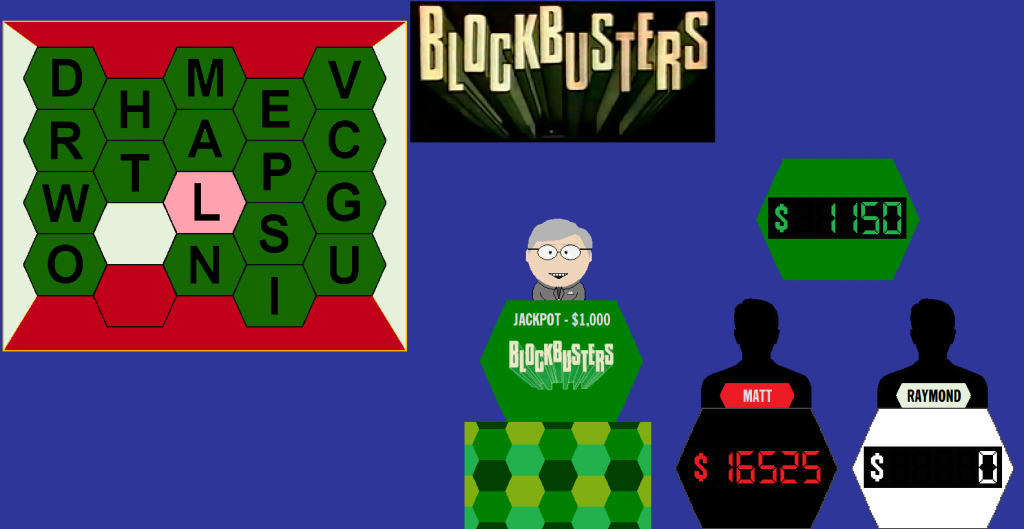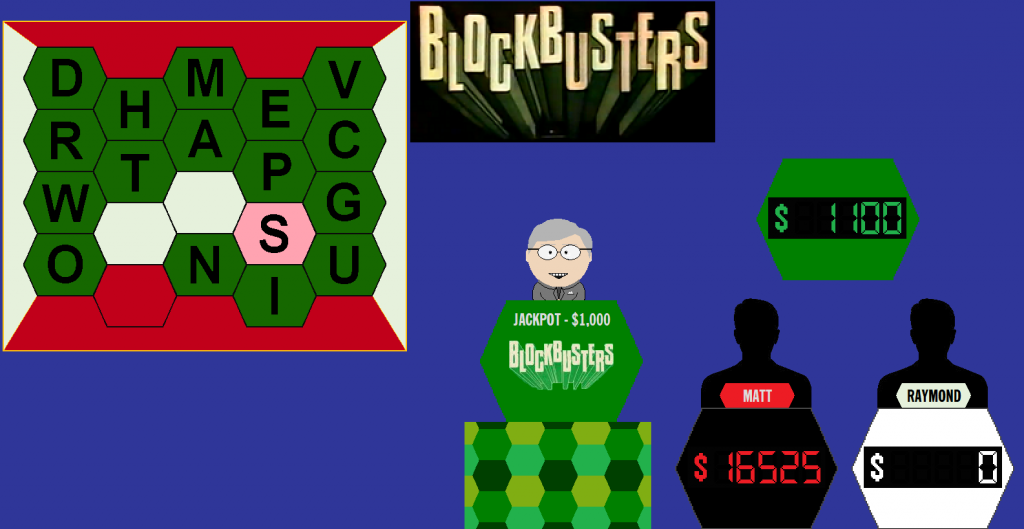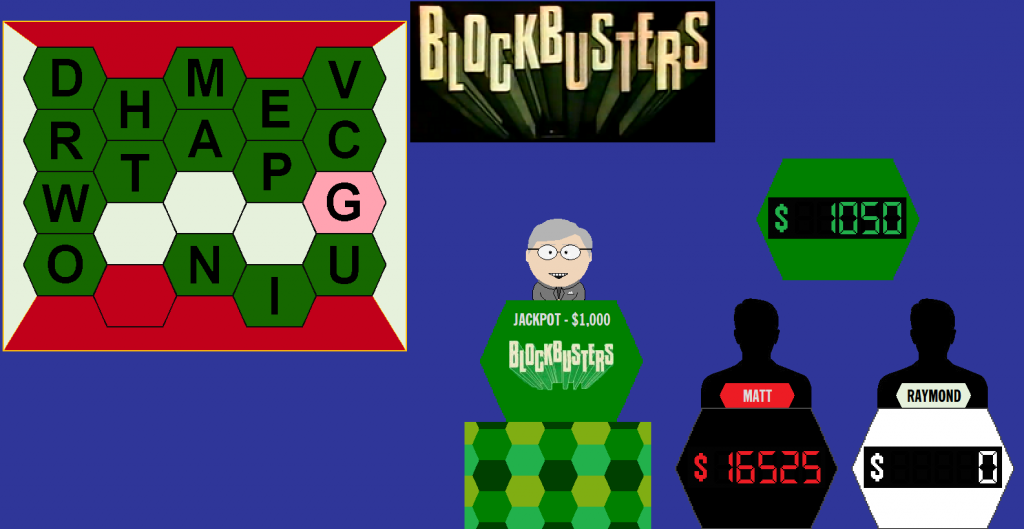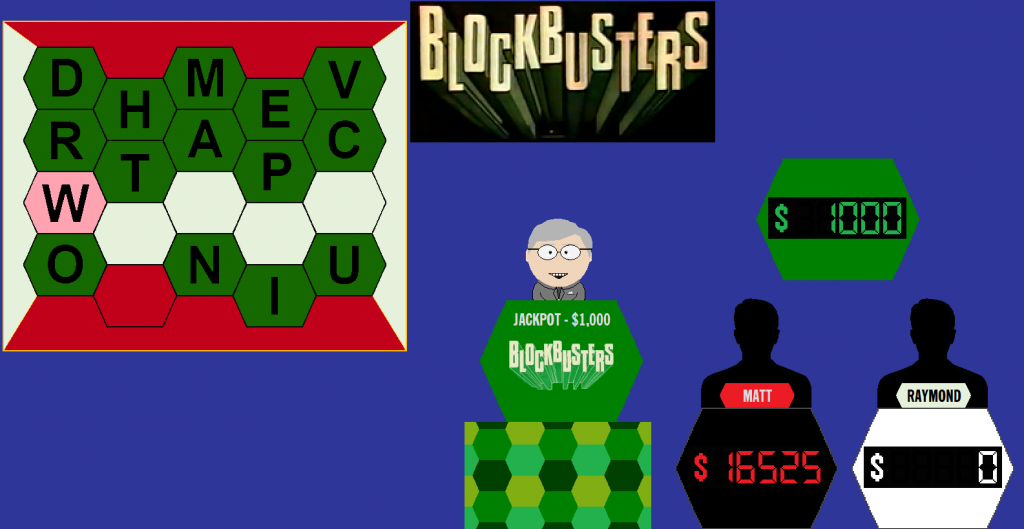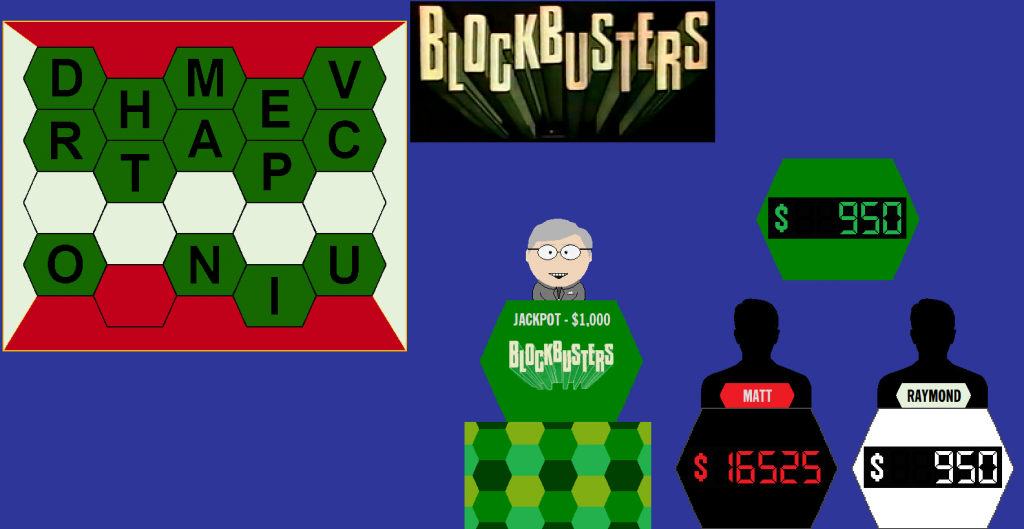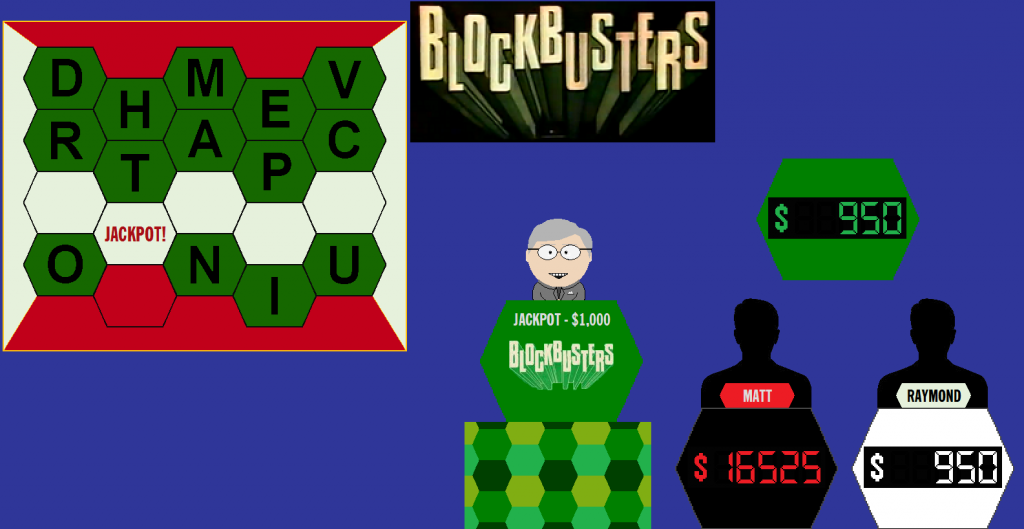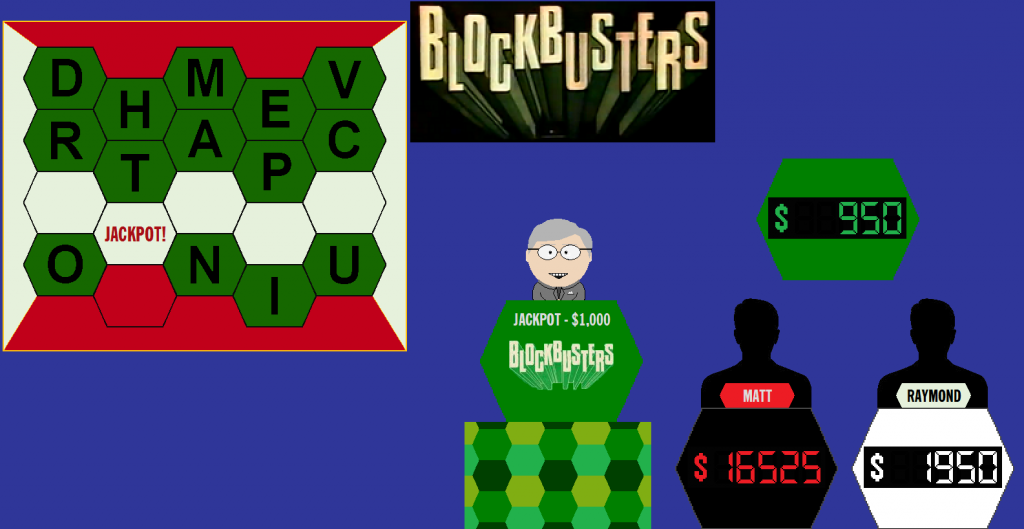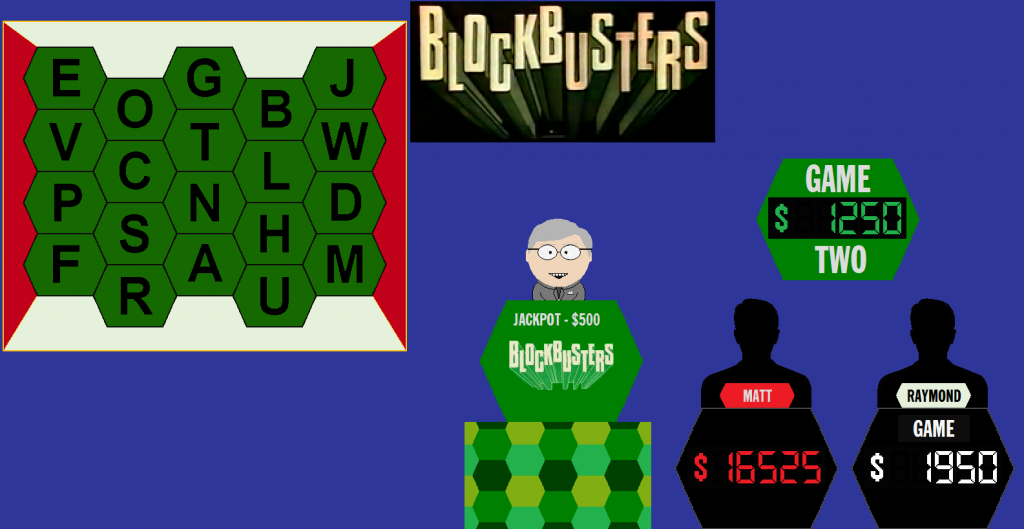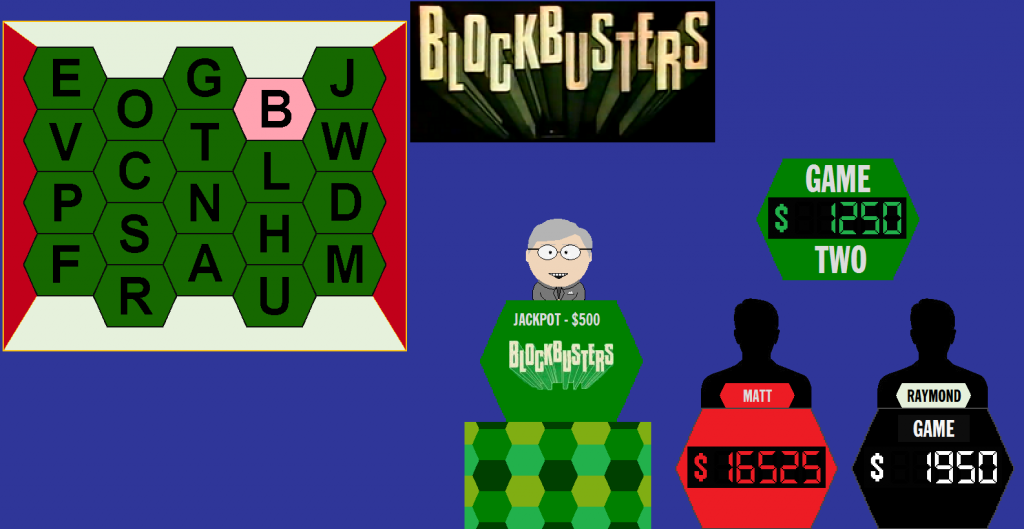Post by billmcdee on Jul 16, 2014 3:23:14 GMT -5
(1980 Theme playing in the background)
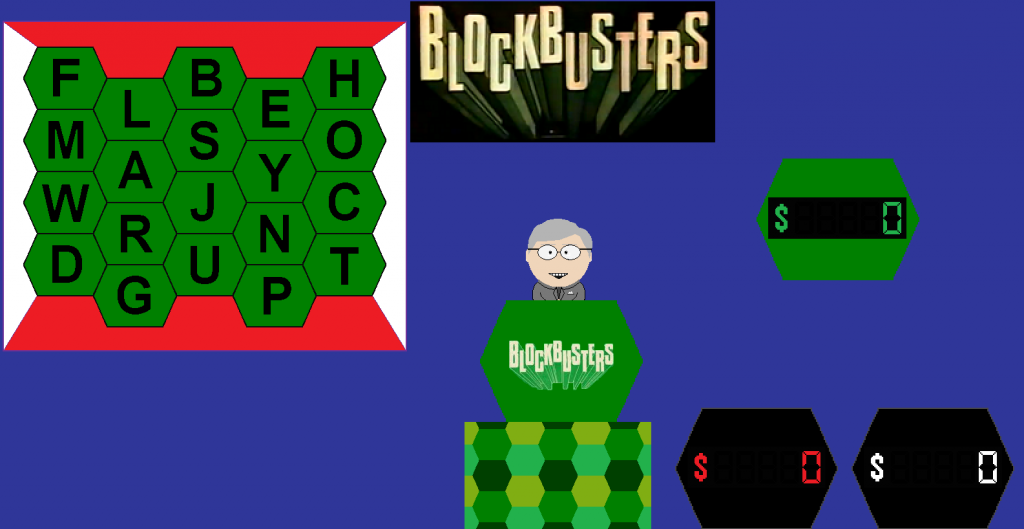
Hello friends, Bill McDee here on the set of "Blockbusters", a game of skill and strategy. Matt Ringgenberg is our 2 day champion, with winnings totaling $16,525. He will need a new challenger for episode #3.
Here is how it works:
Red is the champion, white is the challenger.
Game #1, red must connect top to bottom and can do so in as few as 4 moves. White must connect side to side and can do so in as few as 5 moves.
Game #2, the roles reverse, red must connect side to side, while white has to connect top to bottom.
If Game #3 is needed, the first player to score a block on the board will get the top to bottom shorter path.
There are no buzzcodes, rather, I use a handheld Yahtzee electronic dice game. When a player in control selects a letter, they also predict whether the next roll of the die will be odd or even. If that player is right, then they are the one to have "rang in" first, otherwise their opponent will be first on the button to signal.
At the start of each game, the contestants select the letter, it's not randomly chosen like on the original series. In game 1, the returning champ selects the first letter. In Game 2, the winner of game 1 gets to pick the first letter, and in game 3, the winner of game 2 picks the first letter.
Another new feature is a decreasing pot. It starts at $1,250. If either player wins in a shutout, meaning 4-0 (top to bottom connection) or 5-0 (side to side connection), they win the full $1,250. Otherwise, every time a red or white block goes up on the board, the pot decreases by $50 until there is a winner. The lowest the pot will ever go however is $500, so the faster a player wins a game, the more money they can earn.
One of the 20 blocks on the board is a Jackpot block. The jackpot starts at $500 and grows by $250 per game that it's not won. It was not won on our last show, so in Game #1 of this episode, the Jackpot block will be worth $1,000. The Jackpot block is not revealed until the end of the game.
All money won is kept by both players, regardless of the outcome of the match. If the challenger does not win any games, they will still receive $100 per block placed during each of the 2 games, with a house minimum of $500 going to them.
The first player to win 2 games out of 3 plays a new version of GOLD RUSH, for up to $25,000.
Gold Rush is played in 2 parts. Part 1 is the question board. There are 10 numbered blocks. Hidden behind 5 are questions, 1 with 1 initial, 1 with 2 initials, 1 with 3, 1 with 4, and 1 with 5 initials. Hidden behind 2 it says "FREE PICK!" Hidden behind 2 it says "BLOCK". And hidden behind one it says "HALF OFF".
Part 2 is the money board. 20 numbered blocks on the gameboard. The winner of the match gets 3 picks for free, and can earn up to 6 more. For every correct answer they provide during Part 1 of the bonus game, they earn 1 additional pick. If they happen to uncover all 5 questions, and get all 5 right, they will win 5 picks, plus 1 bonus pick as well, for a total of 6 more, and a grand total of 9 maximum is possible.
If the "FREE PICK" cards are selected during Part 1, those picks are added to the original 3 picks the player gets.
On the 20 numbered board, in three of the columns there will appear a BLOCK. If a block is selected, the rest of that column ends up going out of play. In one of the remaining 2 columns is a BUST card. If that is selected, all bonus game winnings are lost. For this reason, contestants can quit at any time and take the money.
During Part 1, if one of the other 2 BLOCK cards are uncovered, they will be placed somewhere in the same column where one of the block cards already appears. So in theory, a single column could house as many as 2 blocks. If the 1/2 off card is selected, that will go into one of the columns where there is a block already hiding. If that is selected, the pot is cut in half at that moment, so there's an added element of risk that was not part of the first 2 episodes.
Also hidden on the board are 2 halves of the word DOUBLE. If a player uncovers both the "DOU" and "BLE", the pot is doubled at that moment.
The Gold Rush pot starts at $2,500. 14 other money cards are hidden on the board ranging from $500 up to $2,500 and various amounts in between. If a player gets all 9 picks, and uncovers the 7 highest money amounts, then the DOU and BLE cards, it will come to $25,000.
A player may quit and take any money in the bonus pot, but if they select a BLOCK, they must pick again. If they uncover a money amount, either half of the DOUBLE, or the "HALF OFF" card (if it is on the board), the player may stop and quit. And of course if the BUST card is hit it's all over!
Champions continue on as long as they keep winning matches.
Are there any questions? If so please let me know.
I have 2 questions.
Question 1, champion Matt Ringgenberg, could you kindly check in at this time?
Question 2, who here wants to challenge Matt in episode #3?
Lastly, I find it's easier for episodes to be "self contained", so if a match runs short, I'll have an audience game or perhaps a consolation game for the challenger if the challenger lost in the match.
Best, now and always...
Bill

Hello friends, Bill McDee here on the set of "Blockbusters", a game of skill and strategy. Matt Ringgenberg is our 2 day champion, with winnings totaling $16,525. He will need a new challenger for episode #3.
Here is how it works:
Red is the champion, white is the challenger.
Game #1, red must connect top to bottom and can do so in as few as 4 moves. White must connect side to side and can do so in as few as 5 moves.
Game #2, the roles reverse, red must connect side to side, while white has to connect top to bottom.
If Game #3 is needed, the first player to score a block on the board will get the top to bottom shorter path.
There are no buzzcodes, rather, I use a handheld Yahtzee electronic dice game. When a player in control selects a letter, they also predict whether the next roll of the die will be odd or even. If that player is right, then they are the one to have "rang in" first, otherwise their opponent will be first on the button to signal.
At the start of each game, the contestants select the letter, it's not randomly chosen like on the original series. In game 1, the returning champ selects the first letter. In Game 2, the winner of game 1 gets to pick the first letter, and in game 3, the winner of game 2 picks the first letter.
Another new feature is a decreasing pot. It starts at $1,250. If either player wins in a shutout, meaning 4-0 (top to bottom connection) or 5-0 (side to side connection), they win the full $1,250. Otherwise, every time a red or white block goes up on the board, the pot decreases by $50 until there is a winner. The lowest the pot will ever go however is $500, so the faster a player wins a game, the more money they can earn.
One of the 20 blocks on the board is a Jackpot block. The jackpot starts at $500 and grows by $250 per game that it's not won. It was not won on our last show, so in Game #1 of this episode, the Jackpot block will be worth $1,000. The Jackpot block is not revealed until the end of the game.
All money won is kept by both players, regardless of the outcome of the match. If the challenger does not win any games, they will still receive $100 per block placed during each of the 2 games, with a house minimum of $500 going to them.
The first player to win 2 games out of 3 plays a new version of GOLD RUSH, for up to $25,000.
Gold Rush is played in 2 parts. Part 1 is the question board. There are 10 numbered blocks. Hidden behind 5 are questions, 1 with 1 initial, 1 with 2 initials, 1 with 3, 1 with 4, and 1 with 5 initials. Hidden behind 2 it says "FREE PICK!" Hidden behind 2 it says "BLOCK". And hidden behind one it says "HALF OFF".
Part 2 is the money board. 20 numbered blocks on the gameboard. The winner of the match gets 3 picks for free, and can earn up to 6 more. For every correct answer they provide during Part 1 of the bonus game, they earn 1 additional pick. If they happen to uncover all 5 questions, and get all 5 right, they will win 5 picks, plus 1 bonus pick as well, for a total of 6 more, and a grand total of 9 maximum is possible.
If the "FREE PICK" cards are selected during Part 1, those picks are added to the original 3 picks the player gets.
On the 20 numbered board, in three of the columns there will appear a BLOCK. If a block is selected, the rest of that column ends up going out of play. In one of the remaining 2 columns is a BUST card. If that is selected, all bonus game winnings are lost. For this reason, contestants can quit at any time and take the money.
During Part 1, if one of the other 2 BLOCK cards are uncovered, they will be placed somewhere in the same column where one of the block cards already appears. So in theory, a single column could house as many as 2 blocks. If the 1/2 off card is selected, that will go into one of the columns where there is a block already hiding. If that is selected, the pot is cut in half at that moment, so there's an added element of risk that was not part of the first 2 episodes.
Also hidden on the board are 2 halves of the word DOUBLE. If a player uncovers both the "DOU" and "BLE", the pot is doubled at that moment.
The Gold Rush pot starts at $2,500. 14 other money cards are hidden on the board ranging from $500 up to $2,500 and various amounts in between. If a player gets all 9 picks, and uncovers the 7 highest money amounts, then the DOU and BLE cards, it will come to $25,000.
A player may quit and take any money in the bonus pot, but if they select a BLOCK, they must pick again. If they uncover a money amount, either half of the DOUBLE, or the "HALF OFF" card (if it is on the board), the player may stop and quit. And of course if the BUST card is hit it's all over!
Champions continue on as long as they keep winning matches.
Are there any questions? If so please let me know.
I have 2 questions.
Question 1, champion Matt Ringgenberg, could you kindly check in at this time?
Question 2, who here wants to challenge Matt in episode #3?
Lastly, I find it's easier for episodes to be "self contained", so if a match runs short, I'll have an audience game or perhaps a consolation game for the challenger if the challenger lost in the match.
Best, now and always...
Bill



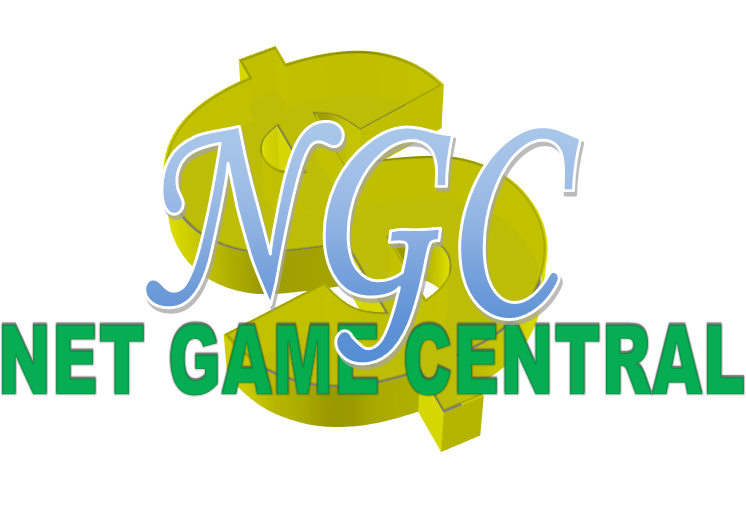
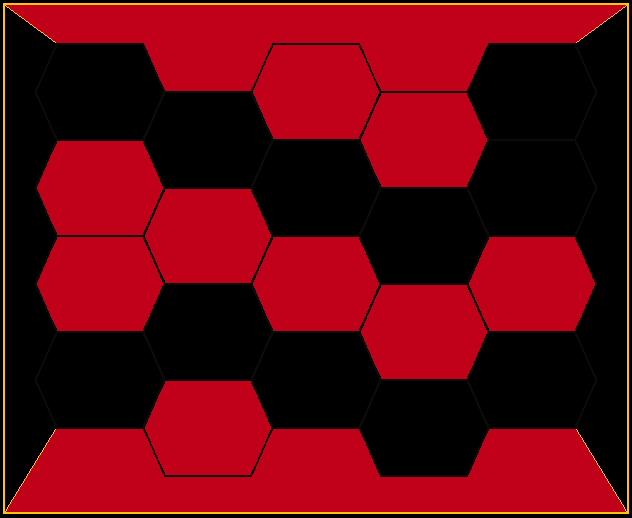
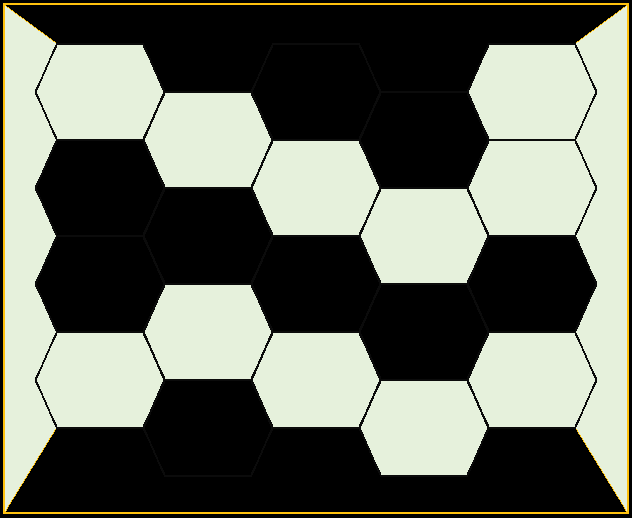
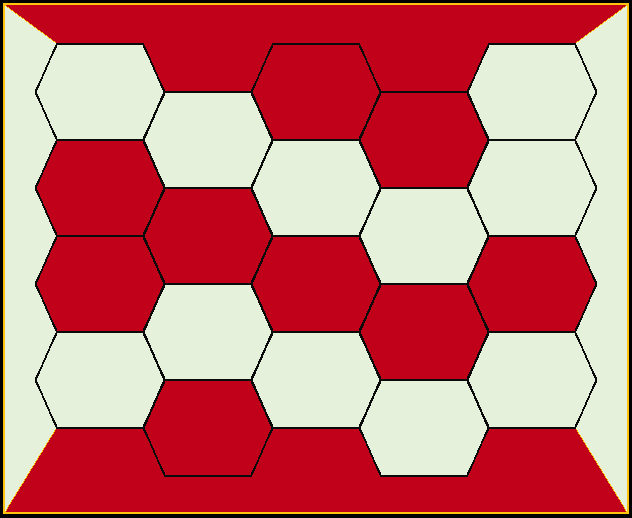
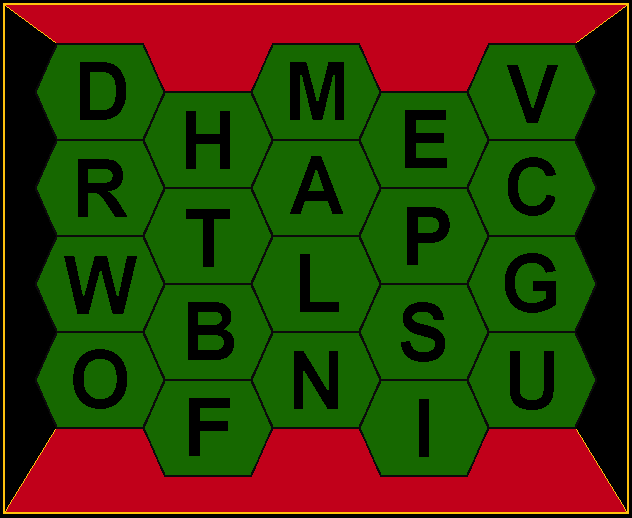
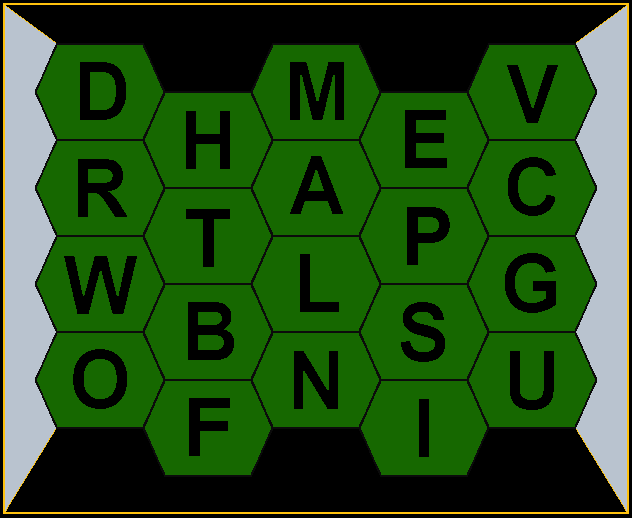
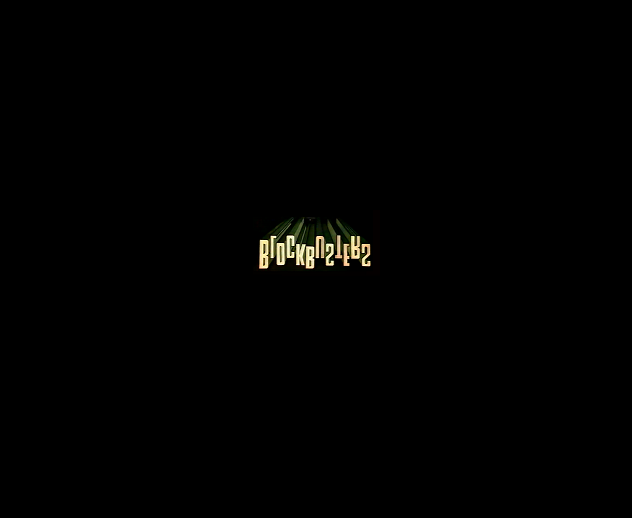
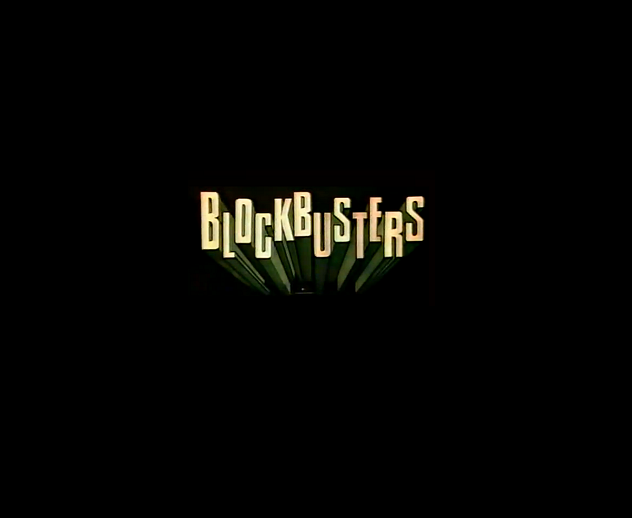
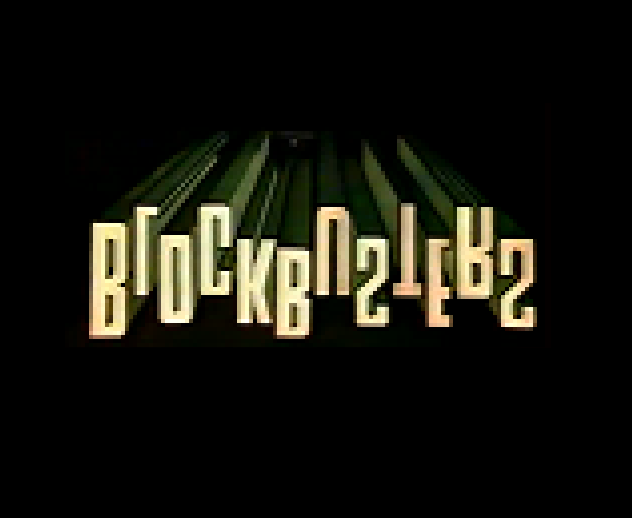
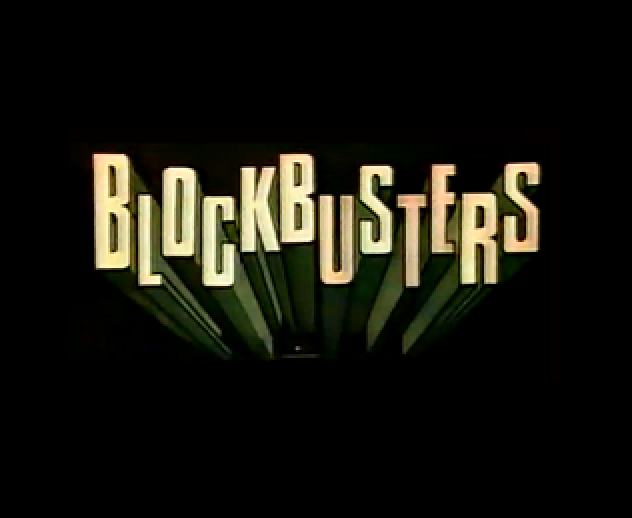
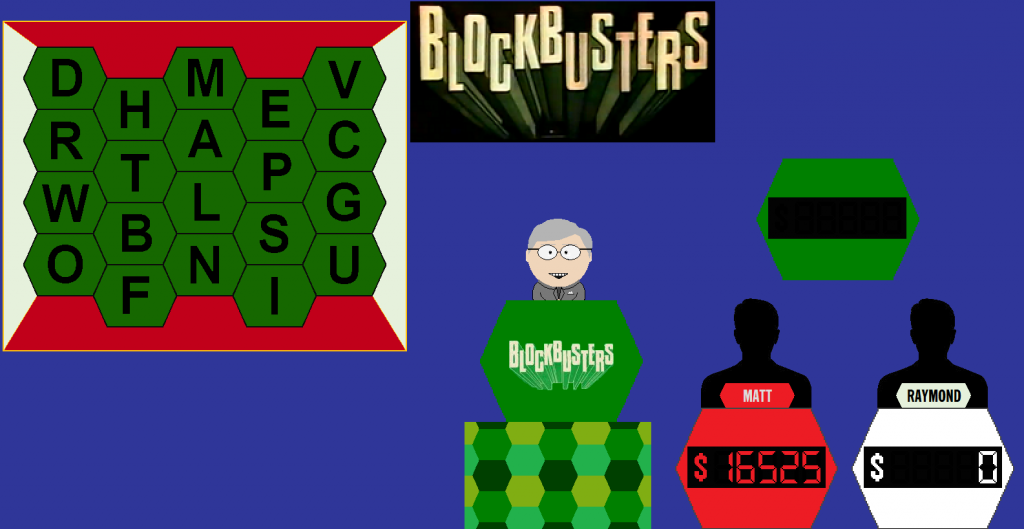

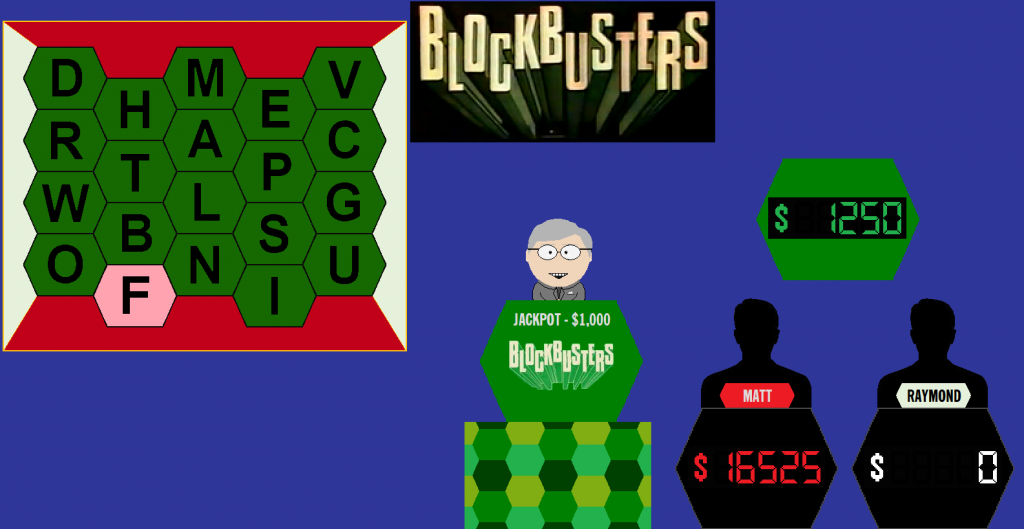
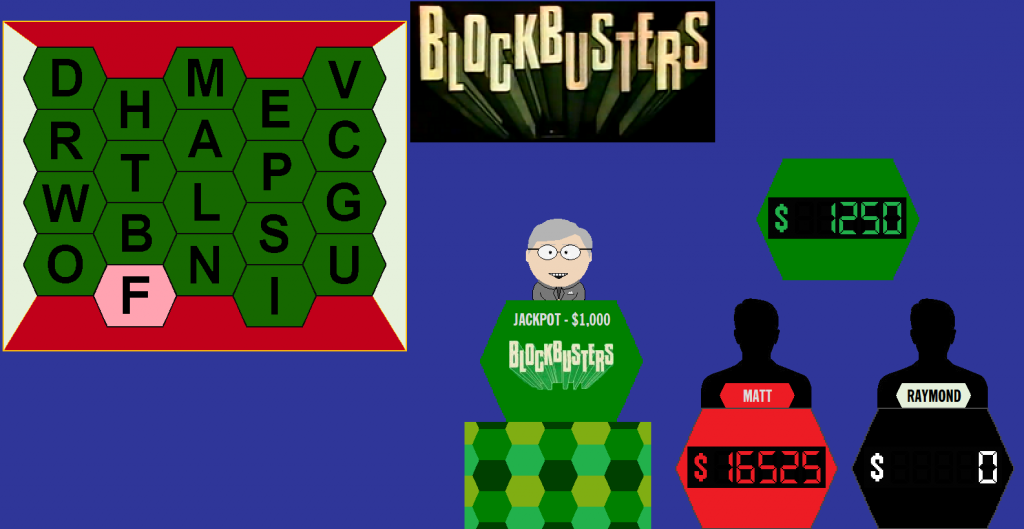
 Another name question here...What "B" is the first name of the late Allen Ludden's wife, and is also Mrs. Rubble's first name on "The Flintstones"?
Another name question here...What "B" is the first name of the late Allen Ludden's wife, and is also Mrs. Rubble's first name on "The Flintstones"?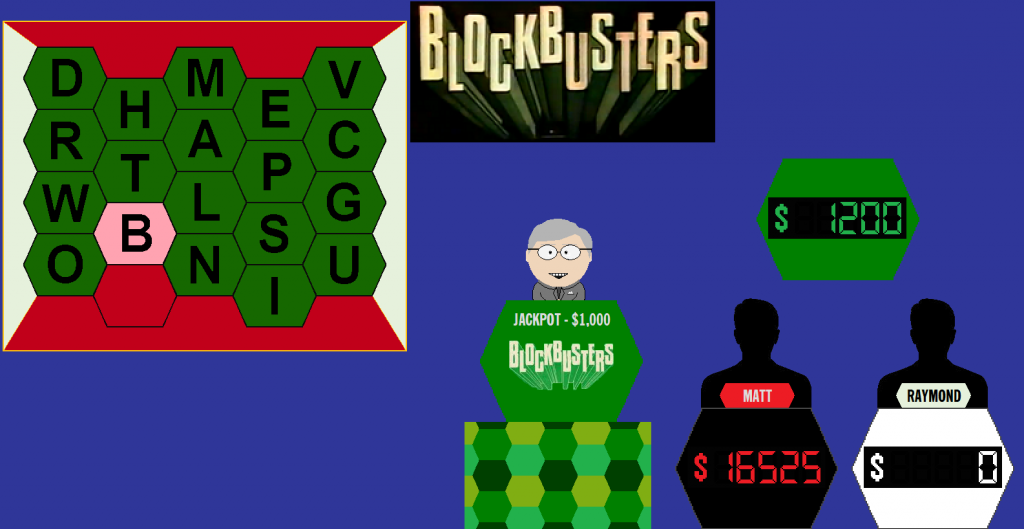
 Trying to connect side to side...
Trying to connect side to side...